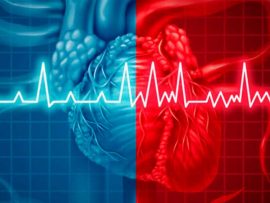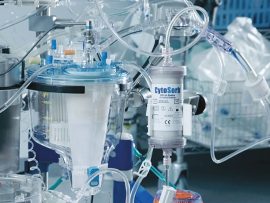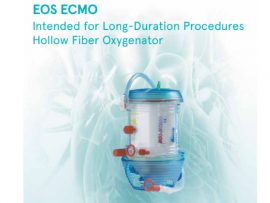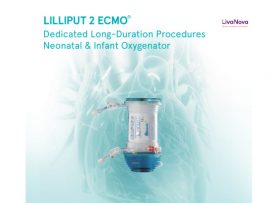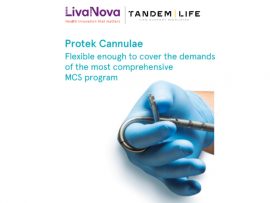Abstract Introduction Evidence suggests that Extracorporeal Cardiopulmonary Resuscitation (ECPR) can improve survival rates for nontraumatic out-of-hospital cardiac arrest (OHCA). However, when ECPR is indicated over 50% of potential candidates are..
Read MoreAbstract Despite immediate coronary revascularization, mortality of patients experiencing infarct-related cardiogenic shock (AMICS) remains high [1]. Over the past decade, there has been a growing interest in the use of..
Read MoreAbstract Background Extracorporeal membrane oxygenation (ECMO) is a rescue therapy in patients with severe acute res‑piratory distress syndrome (ARDS) secondary to COVID‑19. While bleeding and thrombosis complicate ECMO, theseevents may..
Read MoreAbstract Objective: To investigate the correlation between the amount of sufentanil used during anesthesia and intraoperative hemodynamic fluctuation and postoperative recovery in patients undergoing cardiopulmonary bypass (CPB). Materials and Methods: A retrospective..
Read MoreAbstract We tested whether the brain and kidney respond differently to cardiopulmonary bypass (CPB) and to changes in perfusion conditions during CPB. Therefore, in ovine CPB, we assessed regional cerebral..
Read MoreAbstract Intraoperative antithrombotic drug removal by haemoadsorption is a novel strategy to reduce perioperative bleeding in patients on antithrombotic drugs undergoing cardiac surgery. The international STAR registry reports real-world clinical..
Read MoreAbstract Mortality in infarct-related as well as heart failure-associated cardiogenic shock remains high, reaching 40–50% depending on the etiology and severity of cardiogenic shock. Percutaneous active mechanical circulatory support devices..
Read MoreAbstract Anticoagulation is an essential component of optimal extracorporeal membrane oxygenation (ECMO) management. Unfractionated heparin is still the anticoagulant of choice in most centers due to longstanding familiarity with the..
Read MoreAbstract Molecular oxygen is typically delivered to patients via oxygen inhalation or extracorporeal membrane oxygenation (ECMO), potentially resulting in systemic hyperoxia from liberal oxygen inhalation or localized hyperoxia in the..
Read MoreAbstract Background Cardiac surgery–associated (AKI) is associated with increased postoperative morbidity and mortality. Evidence suggests an association between perioperative administration and decreased incidence of postoperative AKI in cardiac surgery patients; however, an effect..
Read MoreAbstract Background The use of extracorporeal membrane oxygenation (ECMO) for patients with acute respiratory distress syndrome (ARDS) has increased substantially. With modern trials supporting its efficacy, ECMO has become an..
Read MoreAbstract Cardiac surgery (CS) with extracorporeal circulation (ECC), induces intense oxidative stress (OS) and systemic inflammatory response (SIR), which may seriously affect postoperative lung function. We aimed to test if..
Read MoreWe welcome healthcare professionals from across the UK working in Intensive Care, Cardiology, Resuscitation and Pre-Hospital Medicine to discuss the role of Extracorporeal Cardiopulmonary Resuscitation (ECPR) in the UK. This..
Read MoreAbstract Background: Cardiogenic shock in children still carries a high mortality risk despite advances in medical therapy. The use of temporary mechanical circulatory supports is an accepted strategy to bridge patients..
Read MoreAbstract Extracorporeal Cardiopulmonary Resuscitation (ECPR) has potential benefits compared to conventional Cardiopulmonary Resuscitation (CCPR) in children. Although no randomised trials for paediatric ECPR have been conducted, there is extensive literature..
Read MoreAbstract Objective Enhanced recovery after cardiac surgery is a multidisciplinary clinical that relies on a bundle of interventions, aiming to reduce the stress response to surgery and promote early recovery of..
Read MoreAbstract Weaning and liberation from VA ECMO in cardiogenic shock patients comprises a complex process requiring a continuous trade off between multiple clinical parameters. In the absence of dedicated international..
Read MoreAbstract Background and purpose Current information on the latest rehabilitative practices is limited, with previous reviews only covering data up to October 2021, and some considering only patients on awake..
Read MoreAbstract Objectives To investigate the effect of retrograde autologous priming (RAP) on coagulation function using rotation thromboelastometry (ROTEM) in patients undergoing valvular cardiac surgery. Design A prospective, randomized, patient- and outcome assessor-blinded study...
Read MoreAbstract Anticoagulation for Subclinical Atrial Fibrillation Recently, the ARTESIA study addressed this question in a randomized trial of 4,012 patients with subclinical atrial fibrillation identified by an implanted device, and..
Read MoreAbstract Introduction Extracorporeal membrane oxygenation (ECMO) may act as a driver or propagator of systemic inflammation. In turn, cytokine release can modify thromboelastographic (TEG) tests which are commonly used for..
Read MoreAbstract Extracorporeal membrane oxygenation (ECMO) continues to be an indispenable tool in critical care settings, in particular in patients with severe respiratory and/or cardiac failure. The COVID-19 pandemic highlighted the..
Read MoreWhy choose smartcanula? The venous smartcanula is a disposable, wall-less canula, for less invasive canulation in conjunction with extracorporeal circulation. The smartcanula principle: “collapsed canula insertion and expansion in situ”...
Read MoreAbstract Circulating venous blood outside the body, through an artificial lung (membrane oxygenator), andreturning oxygenated blood to the patient is extracorporeal gas exchange. Oxygen and carbondioxide exchange in a membrane..
Read MoreAbstract Prevention of limb ischemia in patients with venoarterial extracorporeal membrane oxygenation (VA-ECMO) is primarily achieved through the use of distal perfusion catheters (DPC). Our objective was to assess the..
Read MoreAbstract Nowadays, the necessity of having a cardioplegia circuit capable of being adapted in order to administer different types of cardioplegia is strategically fundamental, both for the perfusionist and for..
Read MoreAbstract Over the past decade, veno-arterial extracorporeal membrane oxygenation (VA-ECMO) has expanded rapidly as a salvage strategy to provide temporary circulatory and respiratory support allowing cardiac function recovery or bridging..
Read MoreAbstract BACKGROUND: Vasoplegia is common after cardiac surgery, is associated with hyperreninemia, and can lead to acute kidney stress. We aimed to conduct a pilot study to test the hypothesis..
Read MoreAbstract Background and objectives Venovenous Extracorporeal Membrane Oxygenation (VV ECMO) provides respiratory support to patients with severe lung disease failing conventional medical therapy. An essential component of the ECMO circuit..
Read More
